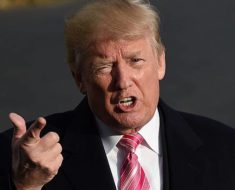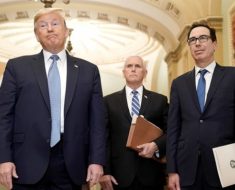Trump’s border wall promise turned into an edict when the president knew the Democrats would fight him like Alaskan wolverines in 2019. Mr. Trump underestimated House Speaker Nancy Pelosi. The president changed his border wall edict a little by adding the word barrier and steel slats to the conversation after he took one for the wall. Trump took his political point as far as he could take it before a real crisis took place. So he opened the government promising to close it again if Congress doesn’t come up with a solution he likes. There is a preconceived notion in some press circles that Trump wants to call a state of emergency.
Washington Post reporter Jennifer Rubin challenged the meaning of Trump’s state of emergency by saying the president talked about a state of emergency months ago. And he’s never declared a state of emergency. Two states called states of emergencies when the Arctic blast and heavy snow created conditions that threatening the lives of the people in those states yesterday. Those governors didn’t wait two or three months to address the emergency. Mr. Trump has yet to make that proclamation, so the word emergency lost its value in Trump’s version of a state of emergency.
The good news is the government is open and the Securities and Exchange Commission is back in business. But the SEC has a backlog that rivals the length of China’s Great Wall. Technology initial public offerings were due to have a record-breaking year in 2019 but went out the shutdown window. Companies like Lyft, Airbnb, Uber, and Pinterest are in line for public trading. But the longest government shutdown in history stopped the SEC from giving those companies, and others, filing approvals and constructive feedback. Most companies want feedback from the SEC. It’s risky to trade publically without it. So even though the SEC is back in business, lawyers familiar with SEC’s current situation say the current unprecedented backlog means companies will have to wait.
According to lawyers who work on IPOs, it’s a serious situation. And the situation could get worse if Trump shutters the government again, according to IPO lawyer, Eric Jensen. If the SEC doesn’t catch up before the next shutdown, Wall Street will feel the pain, according to the Washington Post.
The U.S. economy doesn’t need another shutdown. Depending on the news report the U.S. economy took a $3 to $11 billion hit because of the shutdown. Another one could be a catalyst for the recession some economists talk about.
Dil Bole Oberoi





